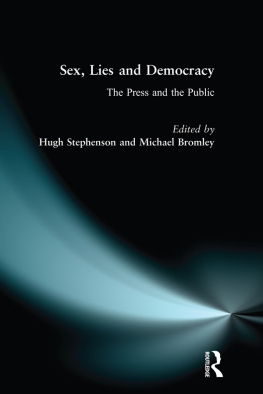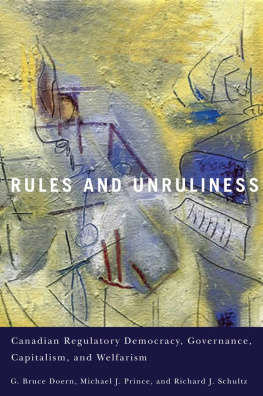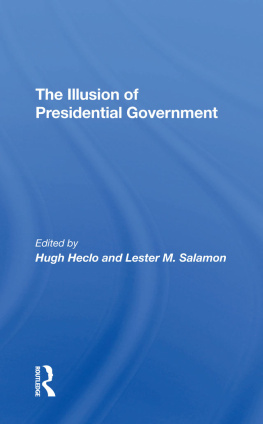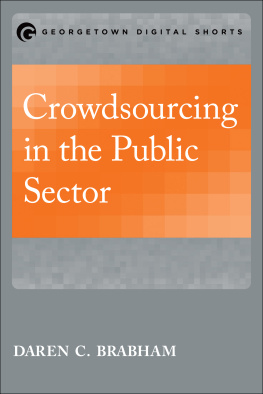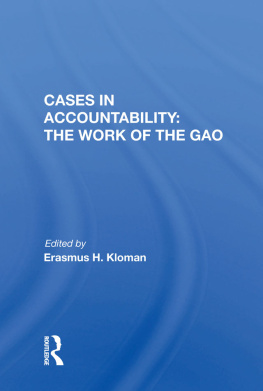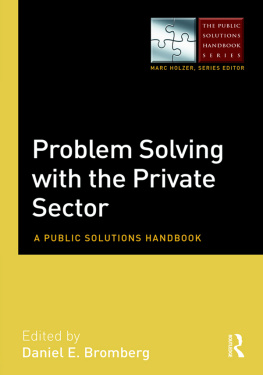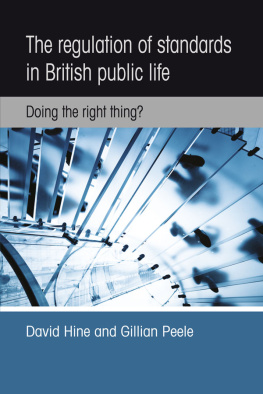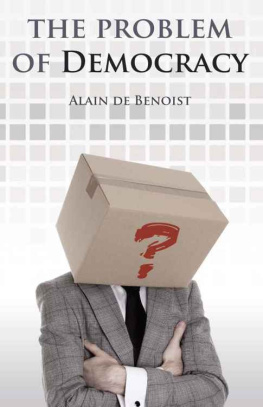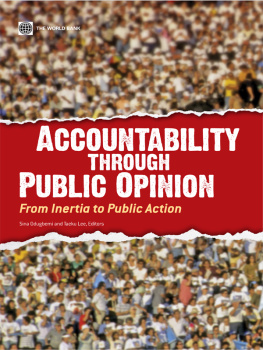First published 1998 by Addison Wesley Longman Limited
Published 2019 by Routledge
2 Park Square Milton Park, Abingdon Oxon OX14 4RN
52 Vanderbilt Avenue, New York, NY 10017
Routledge is an imprint of the Taylor & Francis Group, an informa business
2019 by Taylor & Francis.
All rights reserved. No part of this book may be reprinted or reproduced or utilised in any form or by any electronic, mechanical, or other means, now known or hereafter invented, including photocopying and recording, or in any information storage or retrieval system, without permission in writing from the publishers.
Notice:
Product or corporate names may be trademarks or registered trademarks, and are used only for identification and explanation without intent to infringe.
British Library Cataloguing-in-Publication Data
A catalogue record for this book is available from the British Library
Library of Congress Cataloging-in-Publication Data
Sex, lies, and democracy: the press and the public / edited by
Michael Bromley and Hugh Stephenson.
p. cm.
Includes bibliographical references and index.
ISBN 0-582-29332-4 (pbk.)
1. PressGreat Britain. I. Bromley, Michael, 1947
II. Stephenson, Hugh, 1938
PN5114.S48 1998
072dc21
97-26175
CIP
ISBN13: 9781138467040 (hbk)
ISBN13: 9780582293328 (pbk)
Claude-Jean Bertrand is Professor Emeritus at the Institut franais de presse (Universit de Paris-2). He has specialized in the fields of world media and media ethics and has authored, co-authored or edited a dozen books devoted to Anglo-American civilization in general, to religion but mainly to media. He has published some 80 articles in Arabic, Chinese, English, French, Italian, Japanese, Russian, Spanish and eight other languages.
Michael Bromley is Director of the postgraduate programme in International Journalism, and deputy director of the Communications Policy and Journalism Research Unit at City University.
Andrew Calcutt is a former record producer. He has contributed to various publications, including Arena, Esquire, futures, The Idler, Living Marxism, The Modern Review and BBC2s The Net. His critical essay on the culture of crime was published by Macmillan. He is currently a commissioning editor at Channel Cyberia.
Walter Jaehnig is a faculty member at Southern Illinois University, Carbondale. He is a former newspaper reporter and editor and holds a doctorate in sociology from Essex University.
Tom OMalley is Senior Lecturer in Media Studies at the University of Glamorgan, Wales. Recent publications include Closedown? The BBC and Government Broadcasting Policy (Pluto, 1994); with Michael Harris (eds) Studies in Newspaper and Periodical History (Greenwood, 1996 and 1997) and with Michael Bromley (eds) A Journalism Reader (Routledge, 1997). He is co-editor of the journal Media History, and a member of the Campaign For Press and Broadcasting Freedom.
Adrian Page is Principal Lecturer in Media at the University of Luton.
Hugh Stephenson has been Professor of Journalism at City University since 1986. He was previously editor of the New Statesman from 1982 to 1986, and editor of The Times Business News from 1972 to 1982.
Christophe Texter is at the Institute for the Study of Language and Society at Aston University, Birmingham, and has also worked in the Department of Languages and European Studies. He has also taught at Leeds and Warwick Universities. His research and teaching areas are Media and Cultural Studies.
Barbara Thoma is at the Institut fr Politische Wissenschaft at the University of Hamburg.
John Tulloch is Associate Head of the School of Communication, University of Westminster and a member of the Centre for Communication and Information Studies.
Robert M. Worcester is chairman of MORI (Market and Opinion Research International), visiting Professor in the Department of Journalism at City University and Governor at the London School of Economics.
We are grateful to the following for permission to reproduce copyright material:
National Union of Journalists for National Union of Journalists Code of Conduct; Press Complaints Commission for a Table and The Press Complaints Commission Code of Practice, 1995.
It is instructive to observe, year on year, thirty or more young people from around the world, who either are or intend to be journalists, and who come to study journalism for a year at City University, encountering the British press at first hand for the first time. Their reactions are invariably ones of disbelief, dismay and, occasionally, disgust in tabloid terms, one might say SHOCK HORROR. Their overwhelming view is that no press is as intrusive, offensive, quasi-pornographic, arrogant, inaccurate, salacious and unprincipled. The press in other cultures shares many of these traits, of course. The tabloid weekly magazine is largely a continental European product, and two of the three publications of this type with the largest UK circulations are owned by non-British companies. Rarely, however, does the press elsewhere appear to have all of these characteristics together: Bild Zeitung in Germany may be one of the partial exceptions (Weymouth 1996: 456). Where sections of the press in other cultures can be said to be as tabloid in their approach, they are often marginalized, as in the USA where they have been moved symbolically from the news-stand to the supermarket shelf. In the UK, even the Sport titles, which, in keeping with common practice, are largely excluded from consideration in this volume because they dont seem to fit comfortably under the category press, nonetheless take their place alongside titles such as the Financial Times and The Economist.
Moreover, and almost incidentally, the British national press is also steadfastly metropolitan, unashamedly partisan, and controlled by an almost unhealthy oligopoly. Thus, the impression may be gained that the press in Britain is shaped exclusively by a mainstream, national tabloid culture, emanating from London and exemplified by The Sun

